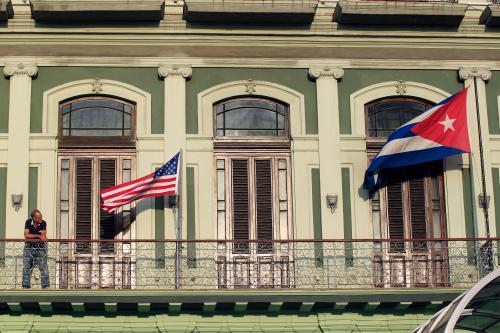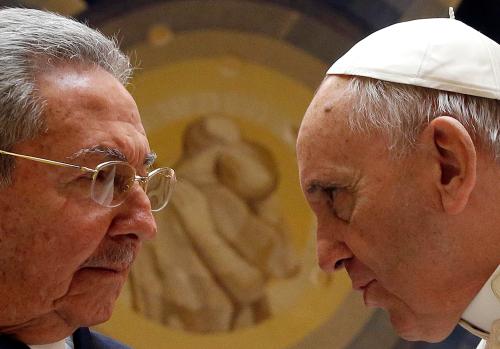Fidel Castro’s passing symbolically ends the long era of strongman rule in Cuba that was already in the rear view mirror. Cubans may now breathe a little more freely as they adjust to life without “el Comandante” peering at them from the pages of the state newspaper Granma. But the post-Fidel transition process had already begun ten years ago, when he stepped down from power due to a serious illness. Change, therefore, is likely to happen only gradually under the pragmatic hand of his younger brother Raúl (now 85), who has promised to step down from office in 2018.
When Raúl Castro fully assumed the mantle in 2008, Cuba embarked on a series of adjustments to its state-controlled system designed to salvage the gains of the Cuban revolution while diversifying its economy away from heavy reliance on Venezuelan subsidies and Chinese largesse. Under the less ideological Raúl, it welcomed new foreign investment and even restored diplomatic relations with its archenemy the United States. The process of U.S.-Cuba normalization—capped by President Obama’s historic visit to the island in March 2016—has already yielded better ties that are in both countries’ interests. Raúl’s “updating” of Cuban socialism, however, has proceeded under limited parameters, in part due to the shadow of Fidel and his most loyal followers and their ongoing die-hard opposition to Washington, the hardline Cuban exiles in Miami, and the punitive U.S. embargo.
Fidel’s death presents the most important opportunity in decades to steer Cuba onto a path of sustainable development unburdened by an orthodox and outdated view of caudillo politics
The big question is whether the faction of the Communist Party leadership that is most loyal to Fidel will retain an outsized influence in slowing down or blocking economic and political reforms. Their influence was on full display at the last Party Congress in April, just one month after Obama’s visit, when a series of modest but nonetheless progressive reforms were scratched, the old revolutionary guard remained at the top and intra-party debate was squelched. Since then, the reform process has stalled, in part due to the government’s decision to dampen the growth of the emerging private sector, and the economy is nearing recession.
In the coming weeks, we should watch carefully whether Raúl and his supporters use Fidel’s death to extend the late Comandante‘s statist and anti-United States legacy or continue and even accelerate the reform process Raúl launched in 2008-2009. Initially, the public display of mourning and affection for Fidel’s paternalistic rule will likely help rally the masses and boost the Party’s control. But beyond that temporary phase, Fidel’s death presents the most important opportunity in decades to steer Cuba onto a path of sustainable development unburdened by an orthodox and outdated view of caudillo politics, one that allows the Cuban people a larger voice in the decisions that affect them.
Coincidentally, Fidel’s death also comes at a critical moment of political change in its so-called enemy next door. The wrong response from Washington—one that tries to exploit the demise of Fidel to “tighten the screws” of the embargo against Cuba—would probably solidify the Fidelista wing of the Party. It would repeat the same mistake made at the end of the Cold War when U.S. policymakers tried and failed to force the collapse of the Castro regime as it struggled to cope with the end of Soviet subsidies. A hostile U.S. approach might also encourage Havana to turn more seriously toward Moscow and Beijing as lifelines in times of trouble.
Instead, Washington should carefully consider the changing circumstances on the island, and the building blocks already in place to improve bilateral relations and modernize the Cuban economy. A better approach for the incoming Trump administration would be to maintain President Obama’s policy of constructive engagement and work with the post-Castro leadership to protect U.S. national interests in a more stable, independent, and open Cuba.
The Brookings Institution is committed to quality, independence, and impact.
We are supported by a diverse array of funders. In line with our values and policies, each Brookings publication represents the sole views of its author(s).








Commentary
The post-Castro era is officially here
November 26, 2016